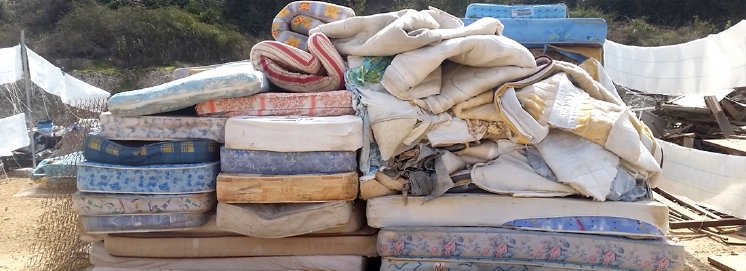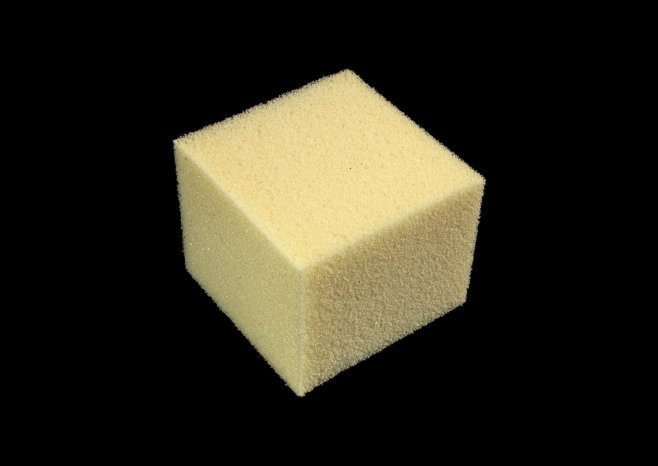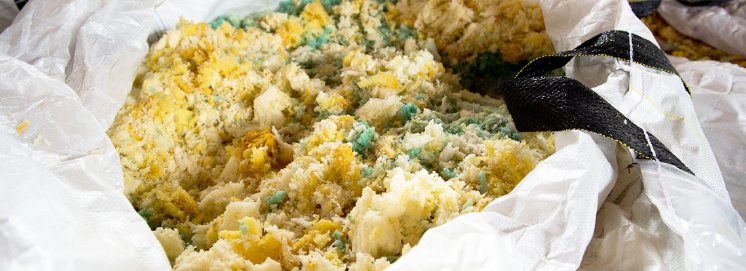Verwertung zu hochpreisigen PU-Materialien anstelle Verbrennen oder Deponieren
Fast ein Drittel der weltweit produzierten Polyurethane wird für die Herstellung von Weichschaumstoffen wie Matratzen, Kissen und Sitzpolster für die Automobil- und Luftfahrtindustrie verwendet. Chemisch gesehen sind Polyurethane Kondensationsprodukte aus Isocyanaten und Polyolen. Für das Recycling von PU-Schäumen wurde im Rahmen des europäischen Forschungsprojekts URBANREC ein chemischer Solvolyseprozess entwickelt.
Mit dem durch das Fraunhofer-Institut für Chemische Technologie ICT in Pfinztal bei Karlsruhe im Vorhaben entwickelten Verfahren, lassen sich aus post-consumer Matratzen wieder Ausgangsprodukte für neue, hochpreisige PU-Materialien gewinnen. Gemeinsam mit den Projektpartnern werden aus den so genannten Sekundär-Polyolen wieder erfolgreich Kissen, Matratzen, Isolationsschäume und Klebstoffe entwickelt. Das Einsatzpotenzial mittels chemischem Recycling erzeugter Sekundärpolyole wurde auf Basis genormter Tests nachgewiesen. Damit lässt sich in Zukunft der Anteil fossil basierter Polyole bei Neusynthesen deutlich reduzieren und gleichzeitig die Deponien und Verbrennungsanlagen entlasten. „Durch eine stoffliche Verwertung lassen sich Rohstoffkreisläufe schneller schließen als bei einer thermischen Nutzung in einer Verbrennungsanlage“ sagt ICT-Projektleiter Ronny Hanich, Chemiker, „und natürlich auch gegenüber der Deponierung, die zudem in Deutschland für Matratzen verboten ist“.
Eine ökonomische und ökologische Bewertung des Prozesses im Vergleich zur Verwendung fossiler Polyole ist aktuell noch in Untersuchung.
Mehr Info unter www.urbanrec-project.eu




